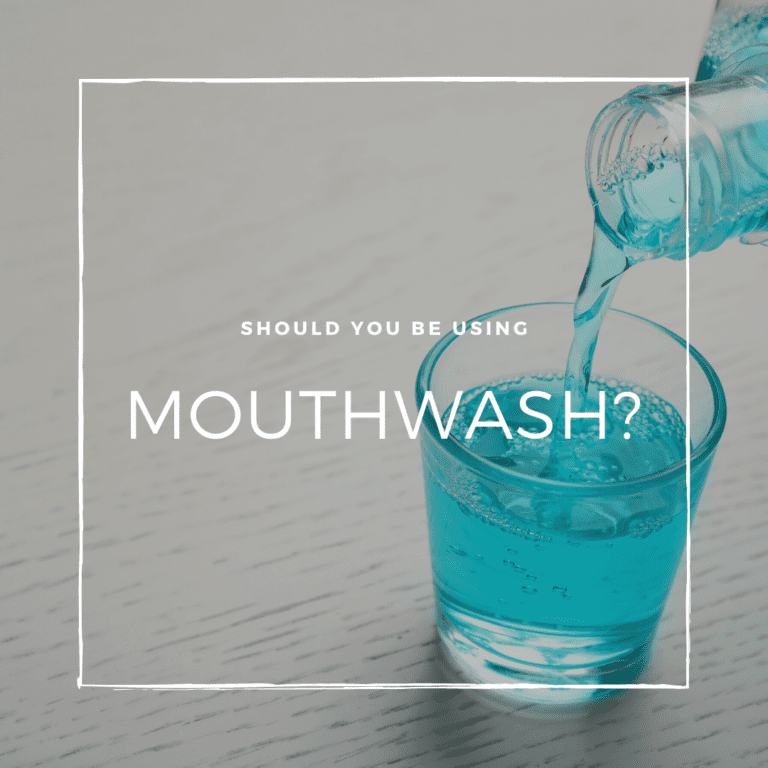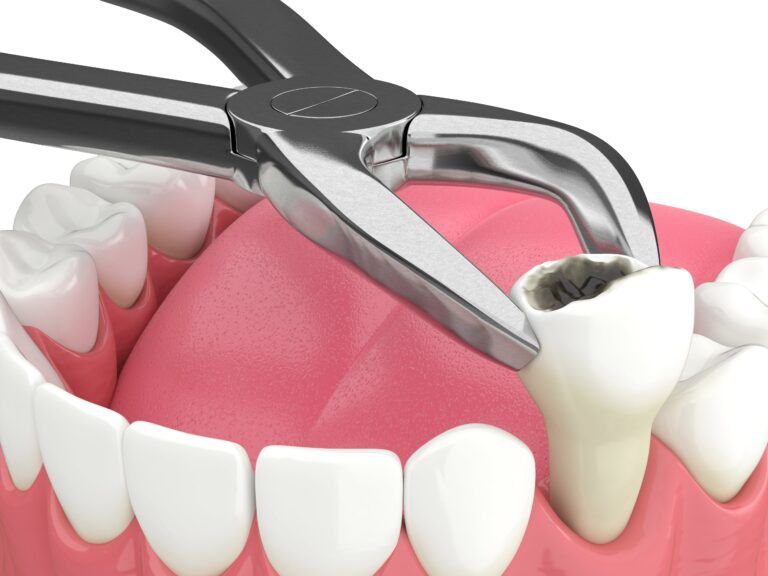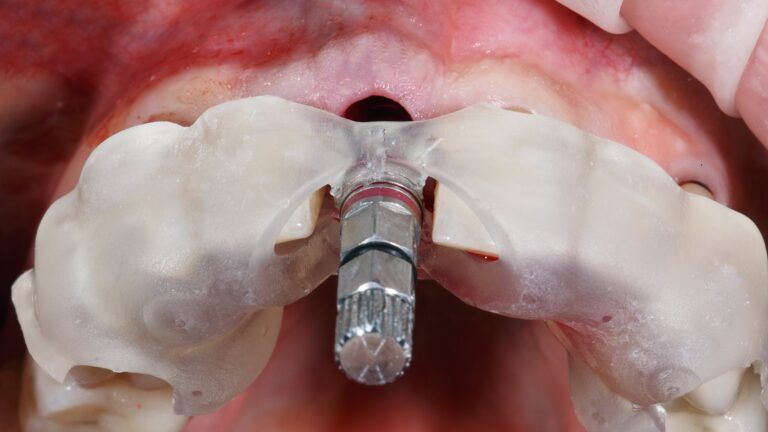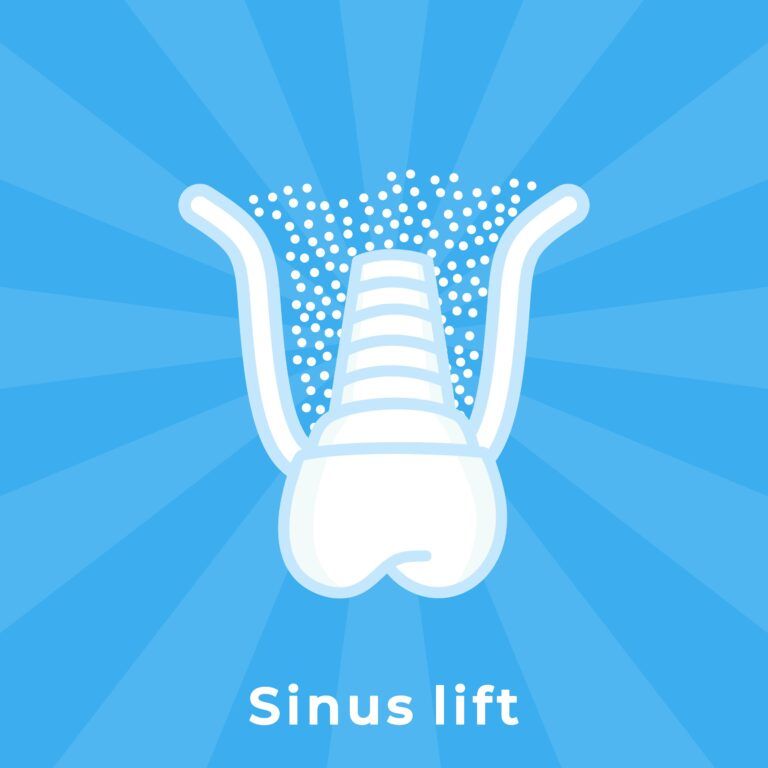After having dental implants placed, most people are committed to maintaining the investment made for their oral health. As such, dental implant specialists find themselves answering a variety of questions regarding the best oral health practices for people with dental implants. One common question that comes up time and time again is whether or not an individual should be using mouthwash. Many people are familiar with mouthwash and may have even used it once or twice, but many people also don’t understand mouthwash as much as they understand brushing or flossing. This ultimately leads to the question of whether or not they should be using mouthwash. To determine whether mouthwash should be a part of your daily dental routine, let’s look a little deeper into some information about mouthwash.
What is mouthwash?
Chances are you’ve at least seen mouthwash in the dental aisle of the store. They come in a variety of colors, although the most common is blue or green. There are two main types of mouthwash: cosmetic and therapeutic. Cosmetic mouthwashes are mainly used to alleviate bad breath or a bad taste in the mouth. However, cosmetic mouthwashes don’t actually kill the bacteria responsible for bad breath. Conversely, therapeutic mouthwashes are formulated with specific ingredients that reduce plaque accumulation, gingivitis, bad breath, and tooth decay. These ingredients found in therapeutic mouthwashes include:

- Cetylpyridinium chloride: reduces bad breath
- Chlorhexidine: controls plaque and gingivitis (prescription only)
- Essential oils (eucalyptol, menthol, thymol, methyl salicylate): controls plaque and gingivitis
- Fluoride: strengthens tooth enamel to prevent decay
- Peroxide: used as a whitening agent in whitening mouthwashes
When considering what type of mouthwash to use with dental implants, there are a few guidelines you should follow to prevent damaging your implants. For starters, you will want to avoid any type of whitening mouthwash that contains peroxide since it can be unnecessarily abrasive. Additionally, you will also want to avoid mouthwashes that contain alcohol since this will cause dry mouth. Dry mouth inhibits your body’s natural defense system against bacteria and can be detrimental to your oral health. Opting for an alcohol-free mouthwash allows you all the benefits of mouthwash without the risk of dry mouth. Finally, you will want to look for the American Dental Association Seal of Acceptance, which shows that particular mouthwash is both safe and effective.
Should YOU be using mouthwash?
Although proper mouthwash use can be beneficial for just about anyone, there are certain people that can benefit more from daily mouthwash use. However, it is important to note that mouthwash is meant to be used in addition to regular brushing and flossing. Here are some dental conditions that respond well to daily mouthwash use:

- Halitosis: more commonly known as bad breath, this dental condition is caused by volatile sulfur compounds that form as a result of plaque buildup, excess bacteria, and the breakdown of food. Cosmetic mouthwashes can be effective at temporarily masking these odors, however only therapeutic mouthwashes can actually reduce the amount of bacteria for the long-term management of bad breath. To treat bad breath, look for ingredients such as chlorhexidine, chlorine dioxide, cetylpyridinium chloride, eucalyptol, menthol, thymol, methyl salicylate, zinc salts, ketone, terpene, or ionone.
- Plaque and Gingivitis: when plaque accumulates, it can cause the mild form of gum disease known as gingivitis. To prevent gingivitis from progressing into the more serious periodontitis, therapeutic mouthwash can be used in combination with daily brushing and flossing. Chlorhexidine is often prescribed to treat gum disease, however it is only intended for temporary use since prolonged use can result in staining. Therapeutic mouthwashes containing essential oils have also been shown to be effective against plaque and gingivitis.
- Xerostomia: more commonly known as dry mouth or a lack of saliva, xerostomia has been associated with tooth decay, gum disease, and bad breath. In the case of dry mouth, it is beneficial to use a mouthwash with fluoride, enzymes, cellulose derivatives, and/or animal mucins. The fluoride will strengthen your enamel, while the remaining ingredients will mimic the composition and feel of natural saliva. When treating dry mouth, it is also highly important to avoid mouthwashes that contain alcohol, since they can make dry mouth worse.

Irfan Atcha, DDS, DICOI, DADIA at New Teeth Chicago Dental in Chicago, Illinois is a board-certified general dentist and a nationally recognized expert in dental implants, cosmetic dentistry, and sedation dentistry.





